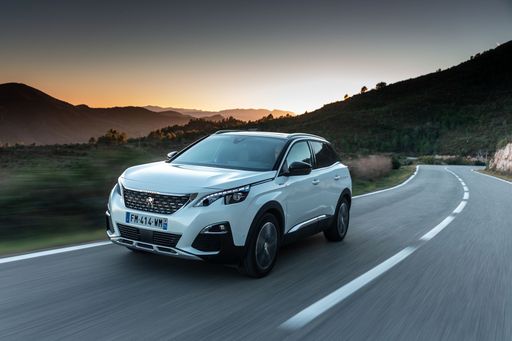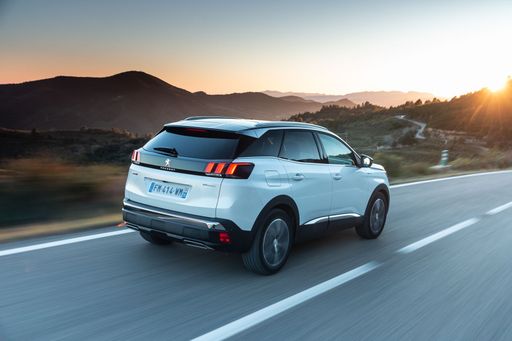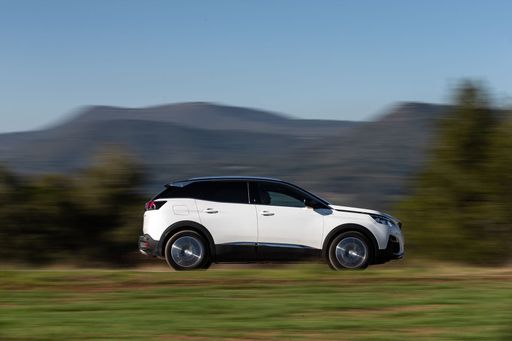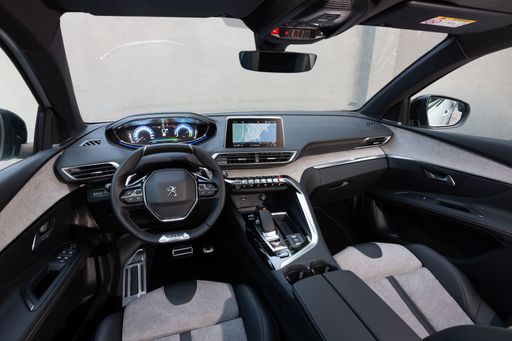Nissan Leaf VS Peugeot 3008 – Specs, Efficiency & Price Comparison
Which model is the better choice – the Nissan Leaf or the Peugeot 3008? We compare performance (217 HP vs 231 HP), boot capacity (394 L vs 520 L), efficiency (16.70 kWh vs 17.20 kWh0.90 L), and of course, the price (30800 £ vs 33600 £).
Find out now which car fits your needs better!
The Nissan Leaf ({ body-type_1}) is powered by a Electric engine and comes with a Automatic transmission. In comparison, the Peugeot 3008 (SUV) features a Petrol MHEV, Plugin Hybrid, Electric engine and a Automatic gearbox.
When it comes to boot capacity, the Nissan Leaf offers 394 L, while the Peugeot 3008 provides 520 L – depending on what matters most to you. If you’re looking for more power, you’ll need to decide whether the 217 HP of the Nissan Leaf or the 231 HP of the Peugeot 3008 suits your needs better.
There are also differences in efficiency: 16.70 kWh vs 17.20 kWh0.90 L. In terms of price, the Nissan Leaf starts at 30800 £, while the Peugeot 3008 is available from 33600 £.
Compare all the key specs now and find out which model fits your lifestyle best!
Nissan Leaf
The Nissan Leaf stands out as a pioneering model in the realm of electric vehicles, known for its impressive blend of practicality and eco-friendliness. It offers a smooth and quiet driving experience, making it an ideal choice for city commuting and longer journeys alike. The interior design is both comfortable and intuitive, providing drivers with a sense of modernity and ease of use.
details @ germany.nissannews.com
@ germany.nissannews.com
 @ germany.nissannews.com
@ germany.nissannews.com
 @ germany.nissannews.com
@ germany.nissannews.com
 @ germany.nissannews.com
@ germany.nissannews.com
Peugeot 3008
The Peugeot 3008 is a compact SUV that seamlessly combines sleek design with modern functionality. Its interior offers a sophisticated and comfortable driving experience, characterised by high-quality materials and innovative technology features. With its dynamic performance and stylish aesthetics, the 3008 stands out in the competitive world of family SUVs.
details @ media.stellantis.com
@ media.stellantis.com
 @ media.stellantis.com
@ media.stellantis.com
 @ media.stellantis.com
@ media.stellantis.com
 @ media.stellantis.com
@ media.stellantis.com

|

|
|
|
|
Costs and Consumption |
|
|---|---|
|
Price
30800 - 37200 £
|
Price
33600 - 49000 £
|
|
Consumption L/100km
-
|
Consumption L/100km
0.9 - 5.7 L
|
|
Consumption kWh/100km
16.7 - 17.8 kWh
|
Consumption kWh/100km
17.2 - 17.7 kWh
|
|
Electric Range
270 - 385 km
|
Electric Range
85 - 698 km
|
|
Battery Capacity
39 - 59 kWh
|
Battery Capacity
17.8 - 96.9 kWh
|
|
co2
0 g/km
|
co2
0 - 129 g/km
|
|
Fuel tank capacity
-
|
Fuel tank capacity
55 L
|
Dimensions and Body |
|
|---|---|
|
Body Type
Hatchback
|
Body Type
SUV
|
|
Seats
5
|
Seats
5
|
|
Doors
5
|
Doors
5
|
|
Curb weight
1580 - 1756 kg
|
Curb weight
1648 - 2183 kg
|
|
Trunk capacity
385 - 394 L
|
Trunk capacity
520 L
|
|
Length
4490 mm
|
Length
4542 mm
|
|
Width
1788 mm
|
Width
1895 mm
|
|
Height
1540 - 1545 mm
|
Height
1641 mm
|
|
Payload
384 - 415 kg
|
Payload
432 - 524 kg
|
Engine and Performance |
|
|---|---|
|
Engine Type
Electric
|
Engine Type
Petrol MHEV, Plugin Hybrid, Electric
|
|
Transmission
Automatic
|
Transmission
Automatic
|
|
Transmission Detail
Reduction Gearbox
|
Transmission Detail
Dual-Clutch Automatic, Reduction Gearbox
|
|
Drive Type
Front-Wheel Drive
|
Drive Type
Front-Wheel Drive
|
|
Power HP
150 - 217 HP
|
Power HP
136 - 231 HP
|
|
Acceleration 0-100km/h
6.9 - 7.9 s
|
Acceleration 0-100km/h
8.4 - 10.2 s
|
|
Max Speed
144 - 157 km/h
|
Max Speed
170 - 220 km/h
|
|
Torque
320 - 340 Nm
|
Torque
230 - 345 Nm
|
|
Number of Cylinders
-
|
Number of Cylinders
3 - 4
|
|
Power kW
110 - 160 kW
|
Power kW
100 - 170 kW
|
|
Engine capacity
-
|
Engine capacity
1199 - 1598 cm3
|
General |
|
|---|---|
|
Model Year
2019
|
Model Year
2024
|
|
CO2 Efficiency Class
A
|
CO2 Efficiency Class
D, B, A
|
|
Brand
Nissan
|
Brand
Peugeot
|
Nissan Leaf
Introduction to the Nissan Leaf: A Pioneer in Electric Mobility
The Nissan Leaf has established itself as a trailblazer in the realm of electric vehicles (EVs) since its launch. As we delve into its present-day iterations, the Leaf continues to soar in popularity due to remarkable advancements in technology and sustainability. Let's explore what makes the Nissan Leaf a standout in today's automotive market.
Power and Performance: Under the Hood of the Nissan Leaf
The Nissan Leaf boasts a power output ranging from 150 to 217 PS, depending on the battery option chosen. The vehicle's electric motor, a product of cutting-edge engineering, offers instant torque ranging from 320 to 340 Nm, resulting in impressive acceleration capabilities. The 0 to 100 km/h dash is achieved in as little as 6.9 seconds, showcasing its prowess in electric performance.
Battery Technology: Efficient Energy Management
When discussing the Nissan Leaf, battery technology is at the forefront. The available battery capacities range from 39 to 59 kWh, supporting an electric range between 270 to 385 km. This flexibility allows drivers to choose a model that best fits their driving habits, providing peace of mind for longer journeys without frequent recharging.
Sustainability: The Environmental Edge
One of the primary attractions of the Nissan Leaf is its commitment to sustainability. As an all-electric vehicle, it produces zero CO2 emissions, placing it in the top tier of the CO2-efficiency class with an 'A' rating. This clean energy approach contributes significantly to reducing environmental impact and supports Nissan's drive towards a greener future.
Design and Comfort: Aesthetic Appeal and Practicality
The Nissan Leaf is not just about efficiency; it's also designed for comfort and utility. With its sleek hatchback body and dimensions of 4490 mm in length, 1788 mm in width, and a height of up to 1545 mm, it offers ample interior space. The boot capacity ranges from 385 to 394 litres, providing sufficient storage for everyday needs. The model accommodates five passengers comfortably, ensuring a pleasant ride for everyone.
Innovations and Safety: Advanced Features for Peace of Mind
Nissan equips the Leaf with an array of intelligent features that enhance safety and convenience. The available equipment lines, including N-CONNECTA, Tekna, e+ N-CONNECTA, and e+ Tekna, offer varying levels of technology integration. ProPILOT Assist, e-Pedal, and a comprehensive suite of driver-assistance technology are just a few examples that highlight Nissan's commitment to innovation in the EV market.
Conclusion: The Nissan Leaf Continues to Lead
With prices ranging from €35,900 to €43,400, the Nissan Leaf remains an attractive choice for those looking to embrace electric mobility. It perfectly balances performance, design, and sustainability, making it a compelling choice in the competitive EV landscape. The Nissan Leaf not only represents the future of driving but also reinforces why it continues to be a leader in the electric vehicle community.
Peugeot 3008
Introduction to the Peugeot 3008
In the rapidly evolving world of SUVs, the Peugeot 3008 stands out as a prime example of innovative design and advanced technology. Offering a range of powertrains from hybrid to fully electric, the 3008 is tailored to meet the needs of eco-conscious drivers without sacrificing performance or luxury.
Powertrain Options and Performance
The Peugeot 3008 is designed to cater to a variety of driving preferences with its versatile range of powertrains. The options include petrol mild-hybrid, plug-in hybrid, and full electric variants. The power output ranges from a modest 136 PS to a robust 210 PS, providing a performance spectrum to suit both city commuters and long-distance travellers. Notably, the plug-in hybrid variant boasts an impressive electric range of up to 85 km, while the electric version can travel up to 524 km on a single charge, making it ideal for both urban and rural settings.
Driving Dynamics and Efficiency
The 3008's driving dynamics are refined and engaging, supported by its front-wheel-drive configuration and automatic transmission. Depending on the model, the vehicle can accelerate from 0 to 100 km/h in as little as 8.4 seconds, while maintaining an efficient fuel consumption rate of as low as 0.9 L/100km for the plug-in hybrid variant. For the eco-conscious drivers, the electric model offers a consumption rate of 17.7 kWh/100km, and its CO2 emissions range from 0 to 129 g/km, reflecting its commitment to reducing environmental impact.
Design and Comfort
The Peugeot 3008 boasts a modern and sophisticated design that embodies both elegance and functionality. Its expansive interior offers seating for five, complemented by a generous boot capacity of 520 litres. The vehicle's dimensions—4,542 mm in length, 1,895 mm in width, and 1,641 mm in height—ensure ample space and a commanding presence on the road. Additionally, the 3008's array of equipment lines like Allure and GT enhance the driving experience with premium features and luxurious touches.
Innovations and Technology
The Peugeot 3008 is equipped with a suite of cutting-edge technological features designed to enhance the driving experience. The intuitive infotainment system is central to the vehicle's interior, offering seamless connectivity and navigation options. Safety and driver assistance technologies are also prominent, including advanced systems for collision avoidance and parking assistance, ensuring peace of mind on every journey.
Conclusion
In summary, the Peugeot 3008 is a compelling choice for those seeking a versatile and modern SUV. With a range of efficient powertrains, dynamic performance, and luxurious design elements, it caters to a broad spectrum of drivers. Its advanced technological features and commitment to sustainability make the Peugeot 3008 a forward-thinking option in today's automotive landscape.
The prices and data displayed are estimates based on German list prices and may vary by country. This information is not legally binding.
